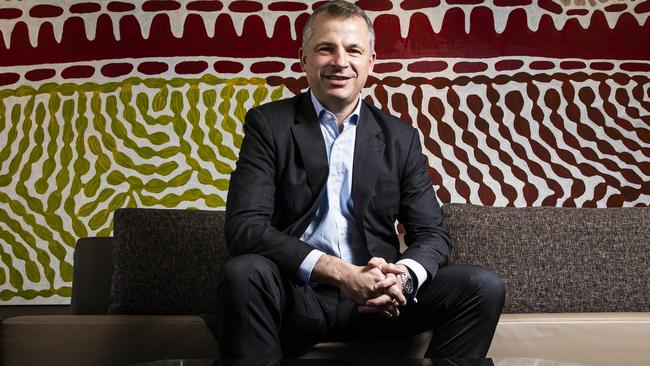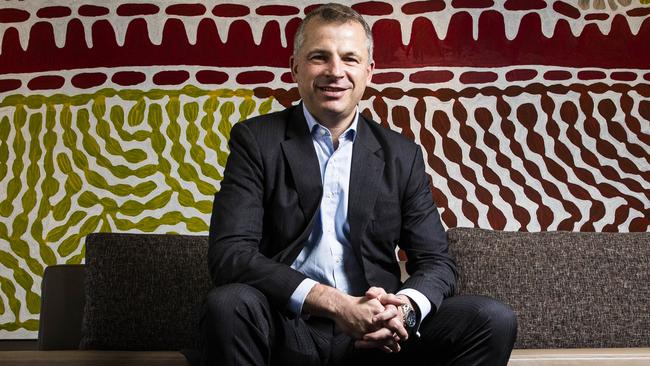Parental leave policies for Grant Thornton, KPMG, Ashurst, Stockland, Accenture, Deloitte, EY, PwC and Infrastructure Australia Australian
Several Australian corporates now offer six months parental leave, with others not far behind as they compete to retain staff.

Australian corporates are involved in a new bidding war, vying to offer up to six months parental leave in an effort to retain staff and offer better opportunities for women.
Gender-neutral leave available to either parent, whether a secondary or primary carer, is the new gold standard among top companies, along with up to 26 weeks leave, in developments that could see couples spend the first year of their baby’s life as full-time carers.
Among the big firms offering 26 weeks are Grant Thornton, KPMG and Ashurst while Stockland offers 20 weeks and Accenture, Deloitte, EY, PwC and Infrastructure Australia are among those who have lifted allocations to 18 weeks.
A number of smaller firms have also increased their leave in the past 12 months to levels well above the average of 11 weeks in the private sector and about 14 weeks in the public sector. Many firms have also agreed to pay superannuation during parental leave – not yet a legal requirement – and have abolished or lowered the period in a job before being eligible for leave.
The push to equal access has been on for some time but accelerated as Covid-19 lockdowns exposed the huge pressure on women as carers and leading firms sought to differentiate themselves in a tightening labour market. The new schemes have the potential to shift the culture around women at work as more men take time out for parenting.
Annika Freyer, CEO of advocacy group Champions of Change said the pandemic had amplified the issues and shone a light on the reality of women and work. COC had long advocated for policies to break down barriers created by caring responsibilities and equal access was a key to that change. She said that 97.3 per cent of its members now offered equal access parental leave.

Paul Jenkins, global CEO of Ashurst, which in July upped leave to 26 weeks, said the company had previously offered 18 weeks for primary carers and two weeks for secondary carers. The new policy recognised “when arrangements are more equal at home, they are more equal at work”.
“I wanted a policy that recognises the modern family and the role of both parents,” he said. “We wanted to differentiate ourselves as a firm, recognise best practice and think about how we can change societal norms.
“Given our workforce and the fact that graduates are more than 50 per cent female, we wanted to think about having the most progressive policies globally.”
Mr Jenkins said new scheme had already been accessed by a number of men: “That will ultimately change the dynamics of the workplace when men see other men taking it.”
Professional services firm KPMG’s new policy is an example of “gold standard”. It removes the labels of primary and secondary carer; offers 26 weeks for all parents; and drops tenure guidelines. The leave can be accessed at any point in the first 24 months of a child’s birth. And like many other companies’ policies it applies to parents welcoming a child through adoption, surrogacy and foster care.
KPMG, along with the Grattan Institute, the Business Council of Australia and Chief Executive Women, is also pushing the federal government to improve its paid parental leave scheme which pays primary carers 18 weeks leave plus two weeks for fathers or partners at the minimum wage.
May 2020 figures from the Workplace Gender Equality Agency - the latest available - show only 52 per cent of private sector companies offered primary carer’s leave to women and men – on average 11 weeks; and 46 per cent offered secondary carer’s leave to women and men – on average two weeks.




